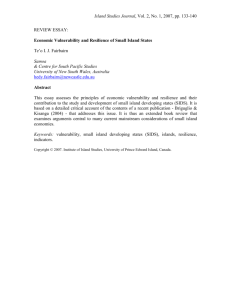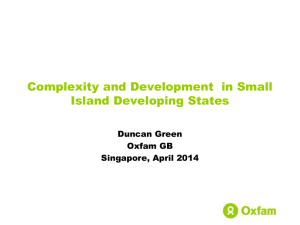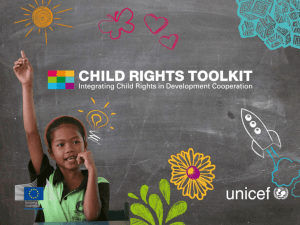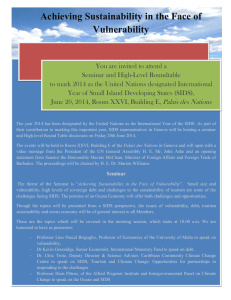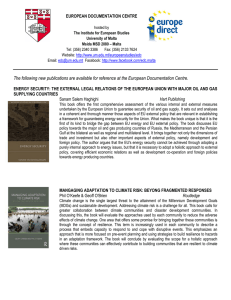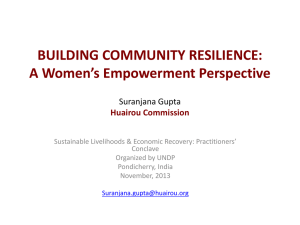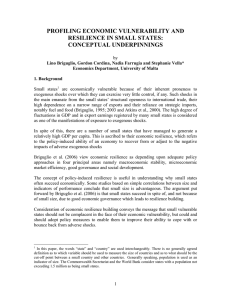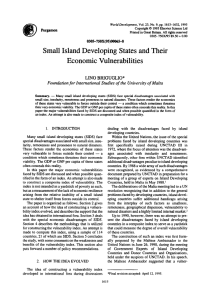2014 is year of small island states
advertisement
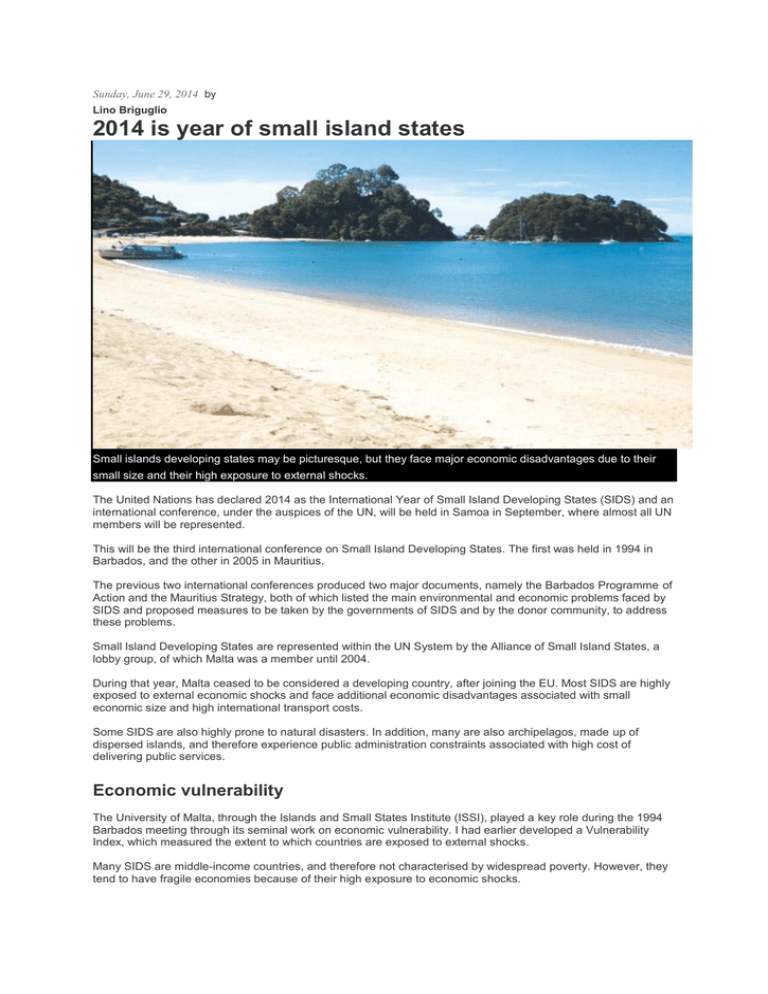
Sunday, June 29, 2014 by Lino Briguglio 2014 is year of small island states Small islands developing states may be picturesque, but they face major economic disadvantages due to their small size and their high exposure to external shocks. The United Nations has declared 2014 as the International Year of Small Island Developing States (SIDS) and an international conference, under the auspices of the UN, will be held in Samoa in September, where almost all UN members will be represented. This will be the third international conference on Small Island Developing States. The first was held in 1994 in Barbados, and the other in 2005 in Mauritius. The previous two international conferences produced two major documents, namely the Barbados Programme of Action and the Mauritius Strategy, both of which listed the main environmental and economic problems faced by SIDS and proposed measures to be taken by the governments of SIDS and by the donor community, to address these problems. Small Island Developing States are represented within the UN System by the Alliance of Small Island States, a lobby group, of which Malta was a member until 2004. During that year, Malta ceased to be considered a developing country, after joining the EU. Most SIDS are highly exposed to external economic shocks and face additional economic disadvantages associated with small economic size and high international transport costs. Some SIDS are also highly prone to natural disasters. In addition, many are also archipelagos, made up of dispersed islands, and therefore experience public administration constraints associated with high cost of delivering public services. Economic vulnerability The University of Malta, through the Islands and Small States Institute (ISSI), played a key role during the 1994 Barbados meeting through its seminal work on economic vulnerability. I had earlier developed a Vulnerability Index, which measured the extent to which countries are exposed to external shocks. Many SIDS are middle-income countries, and therefore not characterised by widespread poverty. However, they tend to have fragile economies because of their high exposure to economic shocks. The 1994 Barbados Programme of Action contained two paragraphs (113 and 114) calling for the use of the Vulnerability Index when considering the economic strength and weaknesses of SIDS. Economic resilience The 2005 Mauritius meeting also assigned major importance to economic vulnerability of SIDS. However, by that time, the concept of economic resilience gained increasing recognition. The ISSI had produced various studies on economic resilience, arguing that SIDS need to adopt good economic governance in order to withstand the external economic shocks that they face. The 2005 Mauritius Strategy called for the development of a resilience index, which I developed together with a team of experts from the University, in collaboration with the Commonwealth Secretariat. The ISSI, again in collaboration with the Commonwealth Secretariat, published various works on the vulnerability/resilience nexus. This theme is likely to feature prominently at the Samoa International Conference in September. The vulnerability and resilience framework The studies undertaken by the University of Malta led to the development of what is known as the vulnerability and resilience (V&R) framework, which generated considerable interest among small island states and international organisations working in the interests of small states. This framework was used to conduct vulnerability/resilience profiling in three small island states, namely Seychelles, St Lucia and Vanuatu, and to the publication of a book on practical approaches to assessing vulnerability and resilience in small island states. These assessments were conducted so as the small states involved could understand the factors that lead to economic vulnerability and to identify priority areas for economic policy-making, so as to better cope with vulnerability and boost resilience. The V&R framework was also referred to in the report of the UN Secretary-General, on the occasion of the fiveyear review of the Mauritius Strategy. A publication by three respected intergovernmental organisations (ESCAP et al., 2010) sought to assess the impact of the global financial crisis by developing a vulnerability index, which is a composite indicator that measures a country’s exposure to the global economic crisis and the country’s coping capacity to mitigate the crisis. In Appendix 3 of their report, ESCAP et al. acknowledge that their approach was inspired by the work of the University of Malta. The UN Department of Economic and Social Affairs, in preparation for the Third International Conference on SIDS in Samoa, has also embarked on developing a vulnerability-resilience framework by building on the approach pioneered by the University of Malta. The main message of the V&R framework is that small island developing states tend to be highly exposed to external economic shocks because of their inherent characteristics, including a high degree of economic openness, exacerbated by a high degree of dependence on a narrow range of exports and on strategic imports. However, this should not be construed as an argument for complacency on the part of small states, because a number of policy options are open to them which could enable these states to minimise the negative effects of external economic shocks. Lino Briguglio is director of the Islands and Small States Institute, University of Malta.
